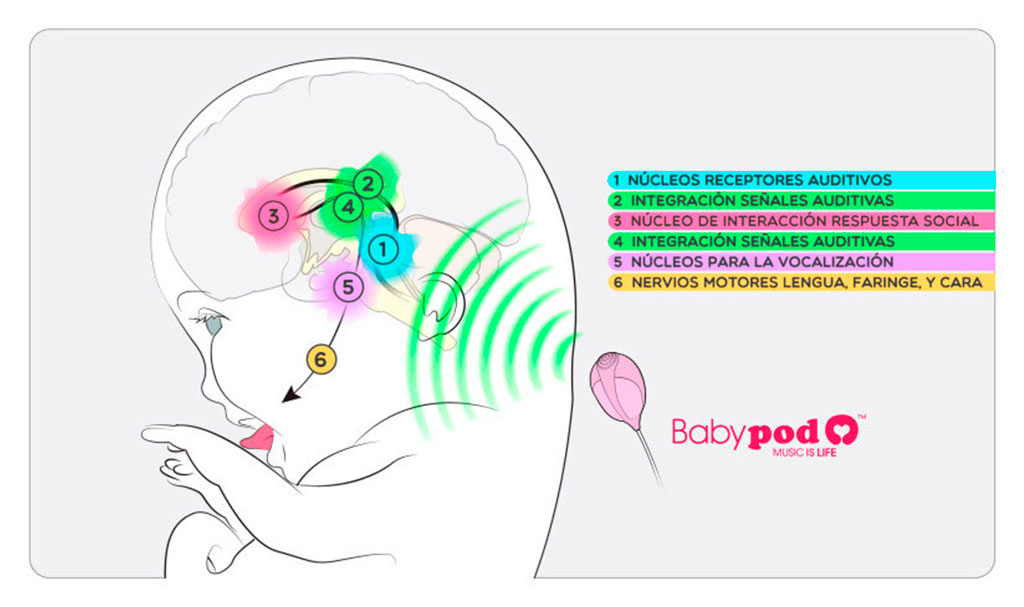The fetus receives sounds from inside the mother's body, such as her heartbeat, breathing and intestinal activity. It also perceives sounds the mother makes, such as when she is speaking or walking with high heels, in addition to other external sounds.
The fetus is well-protected from noise. The fact that it is living in a soundproof environment means that perceived sounds are distorted, as has been shown in research done on sheep using intrauterine microphones. According to this research, the majority of sounds are perceived as whispers (around 30 decibels), while the motherís voice during normal conversation (60 decibels) is barely discerned at all (24 decibels).
And, as most sounds are repetitive, the fetus becomes accustomed to them and does not react. They do not prevent the fetus from sleeping.
We could say that the sounds heard in utero are like the background rustles heard in a forest.


